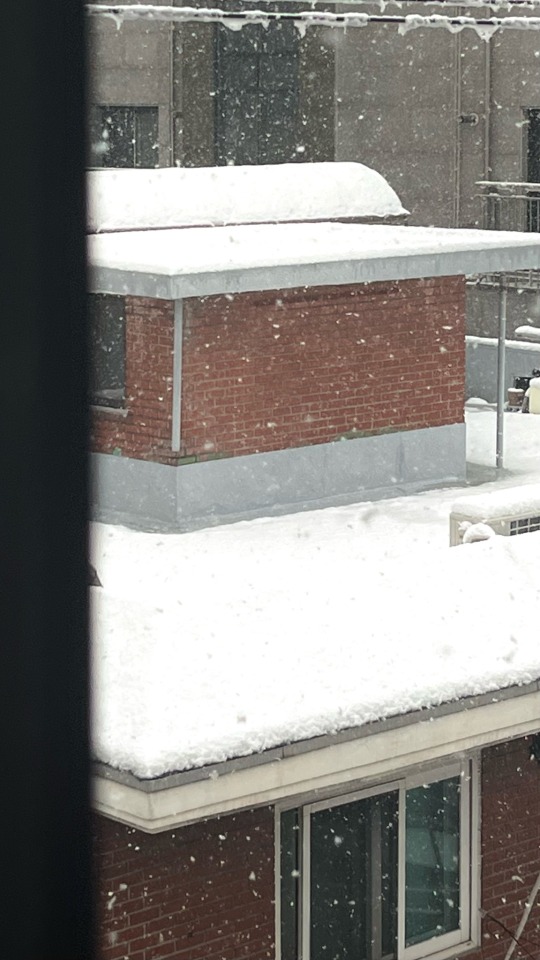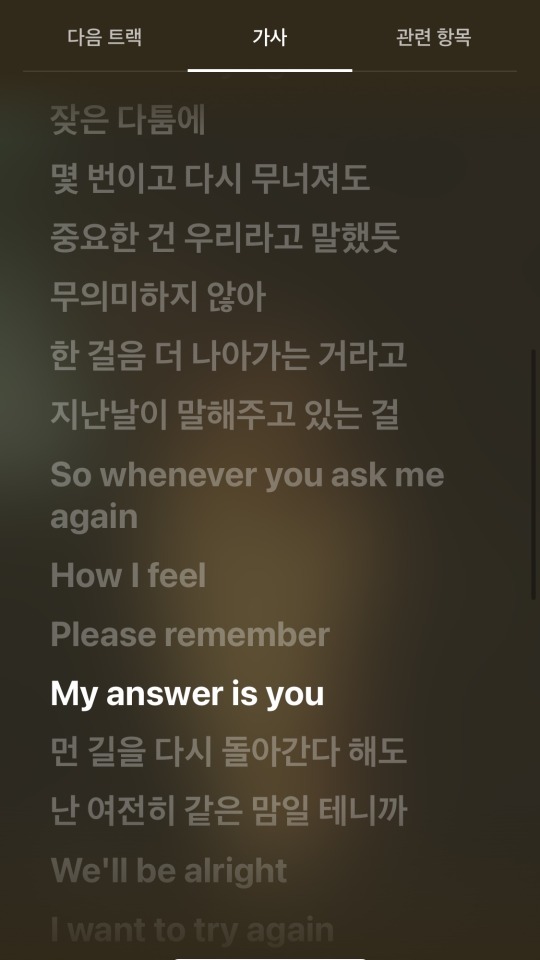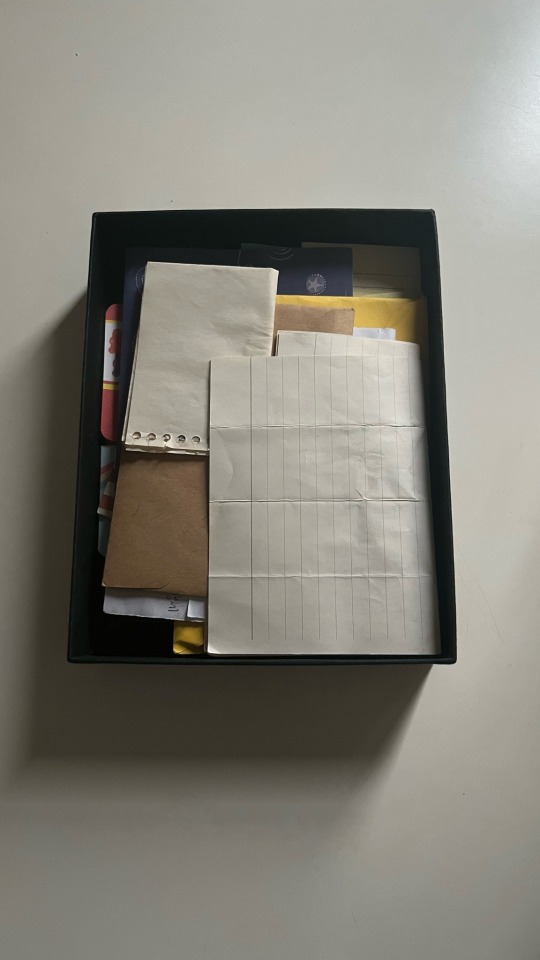#선배
Text

Korean Speech Levels & Titles
What are Korean honorifics?
They are ways of speaking in Korean that communicate the relationship between the speaker and the subject or the listener. Korean has this built into the language with special words, titles, and grammar.
Korean has different speech levels. These levels are demonstrated in the verb endings. The speech levels that are used most often are formal speech, polite/casual speech, and Informal speech. You may also see them listed as high, middle, and low.
Korean Honorifics
Korean honorifics can be thought of as a special speech level. In Korean culture, respect is given high importance in everyday life. This is evident in the Korean language. Koreans use honorific language to communicate respect between the speaker and the subject/listener. Honorifics are used to communicate relative positions in a hierarchy. Typically Korean honorifics are used to show respect to someone higher in the hierarchy or a person who holds a high social status.
Formal & Polite
The formal speech level is used when you’re speaking to someone older than you, someone who holds a higher position than you, or someone who belongs to a higher social hierarchy. Sentences using the formal speech level usually ends with ~ㅂ니다.
The polite speech level or also known as the standard speech can be used in most situations. You can use this speech level when you’re speaking with people you know, but don’t have a close relationship with them. Sentences using this speech level usually end with 요.
Informal speech level
The informal speech level or also known as casual speech can be used when you’re speaking with people with who you have close relationships such as friends and family. This is also the speech level you can use with those younger than you or of lesser seniority.
Korean Speech Levels vs Honorifics
Korean speech levels can be thought of as politeness levels. Typically they are verb endings that demonstrate the formality of a situation. For example, you might use an informal speech level with friends, someone the same age as you, or someone younger than you. You would use the standard speech level for everyday communication. You could use the formal version when giving a speech or a news broadcast. You can use different speech levels to talk about yourself.
Honorifics are used to show respect to the listener or the third person you’re talking about. Honorifics are usually special words (nouns, verbs, verb endings, pronouns, etc) used to show respect. Korean honorifics are typically used for speaking to someone older than you or higher than you in the social hierarchy. You cannot use honorifics to talk about yourself.
What are Honorific Terms in Korean?
Honorific terms in Korean are special titles, words, and verbs that are used to refer to people older than you or higher than you in the social hierarchy.
Honorifics in Korean
The word “honorifics” in Korean can be expressed in 2 ways. The first one is 존댓말. The other word for “honorifics” in Korean is 높임말.
존댓말 is about how you convey or show respect in your sentences while 높임말 is about the choice of respectful words you use in your sentences. 반말 can be translated as the use of informal or casual speech.
KOREAN SUFFIXES
님 = a high-level honorific used to show respect to someone. This suffix is used with people’s names and titles. Koreans can call you using your full name or first name + 님. That is a common way to address someone with respect.
You’ll see the 님 suffix added to job titles. A common 님 usage is with the title of teacher - 선생님.
씨 = used to address people that are roughly on the same level of the social hierarchy. (slightly older or younger than you) An example of this might be two students in class.
This is used with a person’s name + 씨. For example, your classmate is named 배지훈. You address your classmate as 지훈 씨.
아/야 = used with people who are close to you and younger. The format used is name + 아/야. If the name ends in a consonant, then you’ll use name + 아. ㅑIf the name ends in a vowel, then you can use name + 야.
KOREAN TITLES:
오빠
- Literal meaning: “older brother”
- Is also used to call: A male friend or a male sibling who’s older than you (as a female)
- Is used by: A younger female to call an older male friend or sibling
형
- Literal meaning: “older brother”
- Is also used to call: A male friend or a male sibling who’s older than you (as a male)
- Used by: A younger male to call an older male friend or sibling
언니
- Literal meaning: “older sister”
- Is also used to call: A female friend or a female sibling who’s older than you (as a female)
- Used by: A younger female to call an older female or sibling
누나
- Literal meaning: “older sister”
- Is also used to call: A female friend or a female sibling who’s older than you (as a male)
- Used by: A younger male to call an older female or sibling
선배
- Literal meaning: “senior”
- Is used to call: A female or male student who’s older than you at school/university
- Used by: A younger female or male student
- Example: If you’re a senior at a university and your friend is a freshman, you’re 선배 to them.
- Opposite word of 선배 is 후배
후배
- Literal meaning: “junior”
- Is used to call: A female or male student who’s younger than you at school/university
- Used by: An older student to call someone who’s younger than him/her
- Example: If your friend is a freshman at a university and you’re a senior, your friend is 후배.
동생
- Literal meaning: “younger sibling”
- Is used to call: A younger male or female sibling or any friend who’s younger than you (as a female/male)
- Used by: An older male/female or an older sibling to one who’s younger than them
- Side note: You don’t use this word when you call them. Call them by name.
여동생
- Literal meaning: “younger sister”
- Is used to call: A younger female sibling or any female who’s younger than you (as a female/male)
남동생
- Literal meaning: “younger brother”
- Is used to call: A younger male sibling or any male who’s younger than you (as a female/male)
Why Do Koreans Use Honorifics?
This hierarchical culture is followed strictly. Not only just for differences in status but differences in age as well: even a 1-year age difference is considered enough to warrant honorificity.
In many situations, you will see Koreans become overjoyed when they learn that their conversation partner is the same age.
This is because they can speak freely and comfortably to people of the same age, so they will refer to each other as 친구 (chingu, meaning friend), even if they are not close. But if their conversation partner is older, they must use a more polite and formal way of speaking. If they don’t, it could be thought of as disrespectful, embarrassing, or socially insensitive.
You’ll also see 아/어 드리다 in place of 아/어 주다.
The structure of the first phrase is: verb stem + 아/어/여해드릴게요. This is commonly used to tell someone that you will do something for them. You can translate it to “I will do … for you.”
If you form this phrase as a question, it will be: verb stem + 아/어/여해드릴까요?
This is commonly used to ask someone if they would like you to do something for them? It translates to “Shall I do … for you?”.
#한국어#korean langblr#study korean#korean language#korean lesson#koreanspeechlevels#koreanpolitnesslevels#반말#오빠#언니#누나#형#learn korean#korean titles#what does 후배 mean?#what does 선배 mean?#동생#한국어 공부
20 notes
·
View notes
Text


🥀 가르쳐주세요, 선배
.
.
.
《𝙲𝙾𝙼𝙿𝙻𝙴𝚃𝙴𝙳》
#manhwa recommendation#manhwa#webtoon#webtoon recommendation#ridibooks#tapas#tappytoon#kakaopage#lezhin#pocket comics#manta comics#copin comics#naver#webcomic#Please Teach Me Senior#Please Teach Me#가르쳐주세요 선배#drama#romance#modern#slice of life#josei#mature#rated: m
1 note
·
View note
Photo

230411 Big Hit's Tweet
[#오늘의방탄] #슈취타 EP.8 with #투모로우바이투게더
하이브 공식 치킨 요정의 넘쳐나는 미담 오픈! 선배 민윤기 좀 멋있을지도😎
#오늘의슈가 #SUGA #슈가 #프로유튜버민윤기 #슉슈슛슛슈슉슈슈슈가럿샷샤 #애옹이와냥냥즈
[#Today’sBangtan] #Suchwita EP.8 with #TOMORROWXTOGETHER Overflowing stories from Hybe's official chicken fairies are open! Min Yoongi sunbae* might be cool😎
#TodaysSuga #SUGA #ProYoutuberMinYoongi #ShukShuShushShushShuShuSugaRushUshUh #KittyAndNyangNyangs
(T/N: *‘Sunbae’ is a term used to refer to someone who is more senior/experienced than you in something.)
Trans cr; Annie @ bts-trans
© TAKE OUT WITH FULL CREDITS
#230411#suga#yoongi#yeonjun#taehyun#tomorrowxtogether#todaysbangtan#todaysSUGA#suchwita#bighit#official#twitter#photo#bts#bangtan#KittyAndNyangNyangs kills me in the best way
339 notes
·
View notes
Photo










ROWOON as CHAE HYUN SEUNG
She Would Never Know 선배 그 립스틱 바르지 마요 (2021) – Ep. 1
#rowoon#kim rowoon#kim seokwoo#she would never know#kdrama#kdramaedit#userdramas#kdramadaily#asiandramasource#dailyasiandramas#usergooseras#useryd#udeokmis#gifs#my gifs#*#asiandramanet#sorry rowoon i really forgot about this drama :( but you were great in it!
322 notes
·
View notes
Photo

230411 BTS Official’s Tweet
[#오늘의방탄] #슈취타 EP.8 with #투모로우바이투게더
하이브 공식 치킨 요정의 넘쳐나는 미담 오픈! 선배 민윤기 좀 멋있을지도😎
#오늘의슈가 #SUGA #슈가 #프로유튜버민윤기 #슉슈슛슛슈슉슈슈슈가럿샷샤 #애옹이와냥냥즈
#txt#tomorrow x together#230411#twitter#yeonjun#choi yeonjun#kang taehyun#taehyun#BTS#SUGA#Min Yoongi#Suchwita
369 notes
·
View notes
Text
[📷] 240501 | Ateez at @.KStarsNextDoor Twitter Update
동네사람들 다음주 화요일 6시 동스케 스포 나갑니다🫶🏼
1. 금의환향 에이티즈
2. 코첼라 라이브 비하인드
3. 좌찌우찌
4. 약골티즈
5. 선배 마라탕 사주세요
6. WORK 셀프캠 라이브 🤳🏼
#TheKStarNextDoor #ATEEZ
Neighborhood people, Dongseuke spoiler will be coming out at 6pm next Tuesday🫶🏼
1. Golden Return ATEEZ
2. Coachella live behind-the-scenes
3. Left and Right
4. Yakgol Teez (Weak Goldies)
5. Please buy me a malatang my senior (Sunbae).
6. WORK Self Cam Live 🤳🏼




#ateez#ateez icons#ateez moodboard#ateez update#ateez live#kstarnextdoor#yunho#jeong yunho#seonghwa#park seonghwa#mingi#song mingi#choi san#san#jung wooyoung#wooyoung#seonghwa icons#yunho icons#choi san icons#mingi icons#wooyoung icons#seonghwa moodboard#yunho moodboard#choi san moodboard#mingi moodboard#wooyoung moodboard#jonathan
28 notes
·
View notes
Text
I've never read English fanfictions of K-Dramas before, but recently I watched Beyond Evil and it made me go digging AO3 right away. After reading several works, I wanted to write down a few thoughts and some information on names/titles as a native Korean speaker.
It sounds extremely weird when Joo Won calls Dong Sik "Dong Sik" or "Lee Dong Sik" in normal circumstances. In Korea, it is a taboo to call someone older than you by just their name. Whenever this happens in a fic, I can't help to think like, "Joo Won, are you trying to get punched by Dong Sik?! Why are you being so rude all of a sudden??" Of course, we saw that Joo Won calls Dong Sik "Lee Dong Sik" a couple of times in the show, but it was only when he was infuriated or really frustrated by Dong Sik.
Similarly, Yu Yeon would never call Dong Sik "Dong Sik." Maybe "Lee Dong Sik" if she is really mad, but I don't think she is someone who would ever act like that towards her older brother. She'll always call him "oppa (오빠)."
Whenever Dong Sik calls Joo Won "Joo Won" in a fic, my brain automatically translates it to "Joo Won-ah (주원아)" because that's just how you normally call someone younger than you by their name in Korean. In other words, Dong Sik wouldn't literally call Joo Won "Joo Won (주원)"; it'll always be "Joo Won-ah (주원아)." Basically, the rule is that you put "ah (아)" or "ya (야)" at the end of a name depending what it ends with; if a name ends with a consonant, you add "ah (아)," and if a vowel, "ya (야)." Therefore:
Joo Won (주원) -> Joo Won-ah (주원아)
Jae Yi (재이) -> Jae Yi-ya (재이야)
Ji Hoon (지훈) -> Ji Hoon-ah (지훈아)
Ji Hwa (지화) -> Ji Hwa-ya (지화야)
Yu Yeon (유연) -> Yu Yeon-ah (유연아)
You can't use a name + "ah (아)" or "ya (야)" as a subject or object in a sentence, as this convention only happens when you call someone. Because of this, the following sentence sounds awkward:
Dong Sik said, "My Joo Won-ah is such a handsome man."
Strictly speaking, "친구 (friends)" are people who have a bond and are the same age in Korea. That's why we can say Dong Sik, Jung Je and Ji Hwa are friends. Then what about others? At school or work, we can use "선배 (sunbae)" and "후배 (hoobae)." If you're familiar with Japanese terms "senpai" and "kouhai," they are exactly the same meaning. "Sunbae" is someone who is older than you and/or started school/career earlier than you. To your "sunbae," you're their "hoobae." In the show, Sang Yeop, Dong Sik's old partner, calls Dong Sik "sunbae."
However, if you become more intimate (not in a sexual way!) with someone, or if that someone is your family, other terms such as "형 (hyung)," "누나 (noona)," "오빠 (oppa)" and "언니 (unnie)" can be used as follows:
Younger male -> Older male = "형 (hyung)"
e.g. Ji Hoon -> Dong Sik
Younger male -> Older female = "누나 (noona)"
e.g. Ji Hoon -> Ji Hwa
Younger female -> Older male = "오빠 (oppa)"
e.g. Yu Yeon -> Dong Sik
Younger female -> older female = "언니 (unnie)"
e.g. Jae Yi -> Ji Hwa
Plus, you can add the person's name in front of each term. One thing to remember is that you should put "yi (이)" at the end of the name if it ends with a consonant. If it ends with a vowel, no extra syllable is necessary. For example:
Dong Sik (동식) -> Dong Sik-yi hyung (동식이 형)
Jae Yi (재이) -> Jae Yi noona (재이 누나)
Sometimes, you add "nim (님)" to "hyung (형)" and "noona (누나)" to be even more polite/show more respect. Therefore, "hyung (형)" becomes "hyung-nim (형님)," but for "noona (누나)," it becomes "noo-nim (누님)," not "noona-nim (누나님)." Once, Oh Sub refers to Nam Sang Bae "Sang Bae hyung-nim (상배 형님)" while talking to Jung Chul Moon after Nam Sang Bae was arrested. "Nim (님)" can be also added to a job title, so in the show we hear "소장님 (Substation Chief + nim)", "경사님 (Lieutenant + nim)," "경위님 (Inspector + nim)," etc. plenty times. Personally, it is funny to watch Dong Sik sometimes call Joo Won "한주원 경위 (Inspector Han Joo Won)" at the beginning and Joo Won sometimes call Dong Sik "이동식 경사 (Lieutenant Lee Dong Sik)" because technically you have to add "nim (님)" in those cases (you know, Joo Won being Dong Sik's superior officer at the time & Dong Sik being older than Joo Won and his "sunbae" in career), but they just want to show they don't like each other that much so bad!
Oh, and Dong Sik calls Joo Won "도련님 (young master)" from time to time, and it reminds me of Merlin calling Arthur "sire" sarcastically. Those young, elite, arrogant and (surprisingly) naive boys...
Anyway, now what I'm trying to figure out is--what would Dong Sik and Joo Won call each other once they start a romantic relationship? For Dong Sik, obviously it'd be either "주원아 (Joo Won/Joo Won-ah)" or "한주원 (Han Joo Won)." For Joo Won? As I've rambled long above, "동식아 (Dong Sik/Dong Sik-ah)" certainly is out of question. "동식 씨 (Dong Sik-ssi)" is slightly better, but it still sounds a little off to me. My personal picks are "이동식 씨 (Lee Dong Sik-ssi)" and "형 (hyung)." For the latter, I'd like to imagine that Joo Won asks Dong Sik if it's okay to call him that at some point. In bed, Joo Won might call Dong Sik "이동식 (Lee Dong Sik)" when he feels like to be a bit dominant or wants to tease/taunt Dong Sik, but not too often. (In one fic I've read, Joo Won says something like "Focus, Lee Dong Sik" while having sex with him and Dong Sik tries to be angry, saying "Yah--" but apparently he couldn't say much else after that. The fic is one of my favorites so far.)
Okay, that's all I guess. I've never written anything this long in English in my life, and honestly I'm a little nervous. Beyond Evil made me do this. I'm going to look for new fics now. (By the way, thank you for your amazing fics, Beyond Evil fic writers! Keep up the good work!)
324 notes
·
View notes
Text
Love In The Big City Part I and II: Words and Foods (spoiler free)
I know we're not supposed to start this until tomorrow, but I did my reading yesterday and got sucked into it and ended up staying up late to read part I and II, and being a korean book there's a few words and such that are not translated.
Now, I am assuming that people who chose to partake in this blook club have some prior knowledge of Korea, korean culture and the korean language. I also realise I might be wrong, so with my limited knowledge scraped together over years of series, reading, studying and general interest in all things Korean, I put this together and decided to share it early, thinking it might be of help to someone while reading.
Words
Umma/Eomma [엄마]: Mom (informal)
Hyung [형]: "older brother" (informal), used by a man adressing a (slightly) older man, regardless if they're siblings or not. Can signal some level of closeness.
Hyungnim [형님]: "older brother" (formal/respectful), same as 형, but with the added honorific of ~님 to show respect. Often used jokingly.
Oppa [오빠]: "older brother" (informal), used by a woman adressing a (slightly) older man, regardless if they're siblings or not. Common way to adress an older boyfriend.
Nuna/Noona [누나]: "older sister" (informal), used by a man adressing a (slightly) older woman, regardless if they're siblings or not. Can signal some level of closeness.
Nunim [누님]: "older sister" (formal/respectful), same as 누나, but with the added honorific ~님 to show respect.
Unni [언니]: "older sister" (informal), used by a woman adressing a (slightly) older woman, regardless if they're siblings or not. Can signal some level of closeness.
Sunbae/Seonbae [선배]: senior. A gender-nautral way to adress a senior within your school/workplace/field of expertise.
Young/Young-ah [영 / 영아]: adding the suffix -ah [~아] to someone's name signals closeness and friendliness. It can be used for someone of the same age or younger. Often used when speaking to children. Gender-neutral.
Ajussi/Ahjussi [아저씨]: "uncle", used to adress an older man. Can be used both politely and inpolitely, depending on context.
(also an action movie from 2010 that awoke my interest in Korea)
Jeonse [전세]: a common way to pay rent in Korea where you pay in a lump sum rather than monthly, usually for a laese of 2 years.
Goshitel [고시텔]: A combination of the words Goshiwon [고시원] and Hotel, a goshitel is a hotel with tiny rooms, often offering the bare minimum. It's (comparatively) cheap accomodation.
(I recommend watching Strangers from Hell, a series from 2019 that largely plays out at a very run down goshiwon)
Hagwon [학원]: evening school/cram school, privately operated, places for extra study outside of school hours to offer students an "edge" in the unhealthily competitive climate that is the Korean school system (Yes, I have opinions about this. No, I do not ever want to study in Korea. I believe Sky Castle from 2018 could give a look into this, but I haven't seen it on the assumption that it would make me too bloody angry)
Hanbok [한복]: traditional Korean clothing.
Foods
Naengmyeon [냉면]: cold noodles! Litterally cold (냉) and noodles (면) - and it's deliscious! I can recommend the soup version on a hot summer day, with ice, chicken and pear.
Seaweed soup [미역국]: said to be nourishing, it is traditionally served to women after childbirth to help them recover. It is also a traditional birthday dish.
Banchan [반찬]: side dishes, of which there are many in Korea! Often vegetable based.
Hwe/Hoe [회]: thinly sliced raw fish. (The Korean version of japanese sashimi, if you happen to know that that is.)
Other
Mandatory military service: Korea has mandatory military service which applies to all men and which women can apply to. It's about 1,5 - 2 years long. Excemptions can be made, but it's frowned upon. It's complicated. (I have opinions about this, too, that I shan't be getting into here. The series D.P. from 2021 digs into the dark side of it, but I haven't seen it yet, again because I think it'll make me mad.)
Itaewon [이태원]: area/neghbourhood in Seoul, known for it's vibrant and multicultural nightlife. Lots of bars and clubs, and a hub for gay people, but I've heard it's lost some of its popularity after Covid and the Halloween tragedy of 2022. (another series recommendation: Itaewon class.)
25 notes
·
View notes
Text




1. 생일엔 많은 눈이 내렸다. 올해 서울에서 가장 많이 내린 날이었다. 생일 하루만큼은 고요하고 무해한 존재들로만 채우고 싶던 나의 바람을 하늘이 알아준 것 같았다. 기쁜 마음으로 마지막 한 잔 아껴뒀던 위스키를 마셨다. 편지들을 모아둔 추억상자를 열었다. 나는 네가 있어서 행복해. 더 잘해주지 못해서 미안해. 늘 먼저 다가와서 도와줄 것 없냐 말해주는 따뜻한 동료. 지금껏 처음 만나본 좋은 선배. 등등으로 내가 기록되어있다. 위로가 필요할 때면 이 상자를 열어보곤 한다.
2. 1월의 첫 주말이다. 한 주 내내 편안하게, 맛있게 무언가를 먹은 기억이 없다. 이틀 정도는 아무 씹을 거리도 넘기지 못할 만큼 속이 많이 아팠다. 해가 바꼈다고 작년이 리셋되지 않듯, 그냥 똑같이. 괴로운 기억, 괴롭게 하는 사람들은 나를 따라왔다. 지금 내 스트레스가 얼마나 풀인지를, 끼니를 거르며 알아차렸다. 나는 식음전폐란 게 어떻게 가능할 수 있는 것인지… 당최 이해할 수 없었던 사람이니까. 주말이면 괜찮을 것 같았는데, 뭐라도 먹긴 해야할 텐데 먹고싶은 게 없다. 아무튼 속이 너무 아프다. 분명 어딘가 안 좋긴 한 것 같은데 진찰을 받기는 무섭다. 몸에 안좋은 걸 너무 많이 해서… 찔린다.
3. 일찍 눈을 떴다. 대청소를 하고, 가구 위치를 바꿔줬다. 우울할 때나 생각 정리가 필요하다고 느낄 때면 나는 그 감정을 청소로 해소한다. 근데 오늘은 해소가 잘 안된다. 그래서 일기라도 쓰면 좀 나아질까 싶어서.
4. 낮잠을 못 잤다. 밤에도 편하게 잠을 못잘 것 같다. 남아있는 술이 이상한 보드카 밖에 없다. 아무렴… 아무 꿈 없이 잘 수 있었으면 좋겠다.
49 notes
·
View notes
Text










2023.4.1.
그녀와 꽃구경을 했다.
오랜만에 포스팅을 남긴다. 포스팅을 한다는 자체가 생각보다 번거롭고 사진도 모자이크 처리해야하고 사진도 선택해야하고 많은 가치 판단 이후에 작성되는 일기라 생각보다 귀찮고 마음이 쉽지 않다. 그래도 내가 일기를 안 쓰고 많은 분들과 댓글을 주고 받은 건 딱 그만큼 내게 여유가 있었나 보다.
(사실 다 핑계다)
그녀와 서울 숲을 갔다. 미세먼지와 인파와 벚꽃이 반겨주었다. 서울숲도 지어진지 십여년이 지나니까 꽤나 울창했었다. 나중에 꼭 도시락을 준비해서 돗자리를 깔고 앉고 싶다란 생각이 들었다.
그렇게 성수동의 맛집을 검색하다 사람이 너무 많아서 광장시장으로로 자리를 옮겼다(?!) 사실 내가 고집을 피웠다. 다음 점심 메뉴는 그녀를 위해 맞춰야 겠다란 생각을 했다.
그렇게 마약김밥, 떡볶이, 빈대떡, 육회비빔밥을 먹었는데 가장 기억에 남는 건 떡볶이, 떡볶이만 기억에 남았다.
그렇게 배부른 배를 움켜쥐고 덕수궁옆 와플가게에 와서 와플을 줄서서 먹고 그리고 근처 별다방 갔다가 둘이서 사이좋게 숙면을 취했다(?!)
별다방에 조만간 숙박비도 내야할판이다. 보고서 한참 쓸때 누나들이 회의실에서 자라고 하면 회의실 의자 붙이고 누워서 자면 코곤다고 다른 선배들이 너 회사에 숙박비 내라고 한 게 생각난다. 그 선배 아버님 많이 편찮으신데 잘 회복되셨으면 한다.
계속 글이 의식의 흐름대로 아무 생각없이 써지는 거 보니까 회사가 점점 가까워지나보다.
그렇게 그녀와 즐거운 4월의 데이트를 마쳤다.
언제나 끌어 안아 주고 싶고 언제나 입맞추고 싶고 내 모든 걸 줘도 아쉽지 않은 사람이렸다. 당신이 내 마지막 사랑이 되었으면 좋겠다.
자, 내 일로 돌아가보자. 이번주는 교수들이 내 보고서에 질문이 실컷 들어오는주다. 미련한 팀장이 까먹은 점수도 반까이 해야하고, 내 리더십에 대한 답변도 달아 줘야한다. 그리고 다른 직원분들의 답변도 같이 고민해 줘야한다.
일은 언제나 즐겁게, 그리고 마음을 담아서 하는 일은 언제나 통하는 법이다.
(자랑질)아, 내 사회적 가치 보고서는 질의가 없다고 한다. 보고서를 잘써서 궁금한 게 없다고 하는데 아주 뿌듯했다. 마음을 담아서 탈탈 긁어서 쓴 보람이 있었다.
올해 수검 잘 받고 어서 다른 보직이나 받았으면 좋겠다. 돼지와 함께 힘들다. 아, 돼지에 대한 모욕인가. 돼지 미안해요.
2023.4.4.(화) 출근 전철에서
82 notes
·
View notes
Text





선배 후배 친함👯♂
10 notes
·
View notes
Text


240529 day6official
[ #DAY6_BEHIND ]
선배! 노래 불러주세요!🎵
그리고.. 혹시 FM도 같이..?👉👈
올해도 함께 노래해 주신
동국대학교, 감사합니다🧡
9 notes
·
View notes
Text
내 기억이 살아 있는 첫 순간부터 우리 부모님은 돌려막기를 하고 계셨다. 마통 여러 개의 결제일을 맞춰가며 돈을 넣고 빼는 아버지를 보고 있자니 '저걸 계속하면 치매에 걸릴 일은 없겠네..'라는 생각이 절로 들었다.
대학교 때 핸드폰은 친한 학생회장 선배 명의로 개통했다. 그 형은 뭘 보고 나한테 명의를 빌려줬을까.. 거의 1년 반 넘게 매일 한 끼는 그 형이 내 밥을 사줬던 것 같다. 지금 생각해 보니 인생의 은인이시지만.. introverted 90%인 나답게도 연락은 끊겼다.
군에서는 의병전역을 했다. 위병소 나올 때는 신났는데 우리나라 군대가 아무나 집에 보내주는 친절한 곳은 아니었다. 현재 의학 기술로는 치료방법이 없고 배 밖으로 구멍이 날 수도 있다고 ㅎㅎ.. 덕분에 35살에는 항암제 맛도 보고, 처음에 들은 것과는 좀 다른 종류였지만 배에 구멍도 났다.
정규직 근로계약서는 맨 마지막, 지금 다니는 직장에서 처음 서명을 해봤다. 시간강사 계약서를 제외하면.. 그 전엔 계약서 자체를 본 적이 없다. 맨 처음 직장인 홍xx네는 월급이 10만원이라고 했고, 두 번째는 30, 세 번째는 30도 안 나왔다. 은성PSD의 사건 20대 사망자 가방에서 컵라면과 스댕 수저를 봤을 때 무슨 상황인지 바로 이해가 갔다. 나도 두 번째 직장을 다닐 때 컵라면과 집 밥솥에서 락엔락에 옮겨 담은 밥, 그리고 그걸 떠 먹을 스댕 수저를 넣고 다녔다. 그렇게 젊은 애들 피빨아먹고 사시던 우리 사장님들.. 어쩌고들 살고 계실까.
안 좋은 일들만 골라서 모아 써 놓고 나면 참 별로인 2~30대지만.. 좋은 일들만 골라 쓰면 또 좋은 인생이다. S대 졸업해서, (계약서는 못 봤지만..) 업계 10위권 강남 통유리 사옥 회사도 다녔고, 다른 S대 대학원 합격해서 S대 박사도 달았다. 게다가 그 2~30대의 좋으면서도 좋지 아니한 시절 대부분을, 또 나와 비슷한 상황이었던 현 마눌님과 같이 보내면서 꽃도 보고, 달도 보고, 밥도 먹었다.
마누라와 나는 20대 중반, 어리버리 어린 시절 만나 서로를 보며 같이 어른을 향해 자라 왔다. 마누라와 같이 지낸 시간은 뭔 일이 있었건 좋은 기억으로 남는다. 배에 호스 3개 꽂고 아산병원 복도를 시속 0.5km로 걸어가던 때도 그렇게 좋을 수가 없다. 더럽게 가난하던 시절은.. 그 시절에만 느낄 수 있던 재미가 있다. 월급날에만 빨대 꽂는 고급(?) 커피를 같이 사마실 수 있던 재미를 지금 느낄 방법은 없다. 가난과 가난이 주는 불안함은 그 자체로는 괴로움이지만, 그 중에도 애정을 가지고 지내줄 사람만 곁에 있으면 즐거움과 행복도 반드시 같이 남는다.
요즘 우리 마눌님은 부산이란 낮선 곳에 남편 따라 왔다가, 2년 넘게 경력 단절 백수로 지내는 불안 상황을 겪고 계신데 마음이 괜찮으실지 모르겠다. 하루 종일 BL 소설만 보고 계신 것도 불안함의 표현이겠지만.. 지나고 나면 또 좋은 기억으로 남았으면 좋겠다. 무슨 일들이 지나가건, 같이 꽃 보고, 달 보고, 밥먹으면서 잘 지냈으면 한다.
8 notes
·
View notes
Text


day6official: [ #DAY6_BEHIND ]
선배! 노래 불러주세요!🎵
그리고.. 혹시 FM도 같이..?👉👈
올해도 함께 노래해 주신
동국대학교, 감사합니다🧡
#DAY6 #데이식스
#동국대학교
5 notes
·
View notes
Text





선배! #수트댄스 보여주세요😍
선배! 혹시 비하인드 셀카도 같이...
투문 맘을 탕! 탕! 저격할 #원어스 의 단짠단짠 셀카 왔어요🍬🧂
(leedo&hwanwoong tweet)
5 notes
·
View notes
Text
Seriously K-Exol are always mad for the wrong reason! Instead of being mad at SM for Not printing and stocking enough albums, for not promoting Exo and not giving them variety shows and World tours, you're mad because of an expensive Season Greetings photo-Album no one gives a fuck about? Really nigga?
"이건 아무래도 많은 사람이 알아야 할거 같아서 글 올려봅니다.아는 언니가 스엠이랑 통화 연결이 되서 이번 시그에 대해서 물어봤었는데 아는 언니 말로는 스엠 쪽에서는 대표가 안 만들어줬는데 왜 우리한테 따지냐는 식으로 얘기했다고 함.
즉 말하자면 엑소 담당 쪽에서(5센터라고 보는게 맞을거 같음) 안 만들어줬는데 우리가 어떻게 알겠냐. 모른다. 이 얘기인거임.
결론적으로 스엠은 '우리도 모르니까 묻지마라' 이런식으로 모르쇠로 일관하는 거임.
스엠 니들이 모른다고 하면 누가 암? 팬들이 알아? 그렇게 모르면 니들이 직접 5센터 번호를 내놓든가. 근데 너네 그렇게 안해줄거잖아? 그리고 적어도 '확인해보고 다시 연락 드릴게요' 이 말은 할 수 있는거잖아. 그게 어려워?
너넨 우리가 얼마나 호구로 보이면 니들 할말만 하고 끊어버리고 모르쇠로 일관 하는거임?
5센터도 똑같아 그렇게 만드는게 힘들면 다른 가수들껀 어떻게 만들었나 궁금함. 우린 왜 안해줬는지도 궁금하고; 설마 소속사를 떠난다는 그 하나 때문에 이러는건가?
근데 우리만 이런가?
다른 선배 그룹들도 갠 활동은 타 소속사고 그룹만 스엠에서 하는 선배님들 많음. 그 선배님들 시그는 다 있는데 왜 우리만 없는건지 궁금하고, 왜 안 만들었는지 이유도 궁금함.
적어도 안나오면 안나온다고 공지라도 띄워야 하는게 맞는거 아님? 근데 왜 니넨 그것 마저도 안해주는거임? 공지 올리는게 그게 그렇게 어려워?
그냥 지금 니들만 보면 우리 필요할때만 부르고, 필요 없으면 버리는 느낌임.
우리가 너네한테 무슨 잘못을 했길래 이렇게까지 하는거임? 그리고 잘하겠다고 한건 너네였음. 한 입 갖고 두 말 하지말고 니네가 얘기한건 좀 지켰으면 함.
제발 우리도 우리지만 다른 팬들도 호구처럼 우습게 보지마. 난 니네가 좋아서 남아 있는게 아니라 애들을 좋아해서 남아 있는거니까.
과연 애들이 다 스엠을 나가서 그런건진 모르겠는데 그런거였음 진작에 기사 같은게 나와야 되는게 맞는거임. 근데 정작 제대로 소속사랑 헤어진건 d 밖에 없음.
sc는 새소속사 이적한다고 했다가 스엠이 아니라고 반박해서 애매하고 그리고 b는 본인이 라방에서 스엠엔 계속 있을거라 얘기함.
또 애들 입에서 앨범 계획 얘기도 나왔고, 리더도 활동 걱정말라고 그렇게 얘기함. 그래서 솔직히 소속사랑 헤어졌다는건지는 모르겠음. 걍 지금 믿을 수 있는건 우리 애들 뿐인거임.
믿을 사람은 믿고, 안 믿을거면 믿지 마셈. 인용에도 얘기했지만 저런 곳 가끔 있음. 직접 전화 하는거 아니면 안 바뀌는거, 그리고 전화하면 저렇게 비슷하게 나오는 곳도 있음.
난 군뮤 때문에 직접 하우팜즈에 전화 해봤었음. 사실 그때 상황을 설명해주자면
초대권 좌석이 럭드 당첨 됐다는 글이 트위터에서 돌고 있었고 그걸 직접 봤다는 사람도 있어서 확인차 전화했었음. 근데 하우팜즈는 군에서도 말씀 드린거 같은데 그거 군에서 구매한거다. 라고 얘기 하기도 했고 어떻게든 확인하겠단 말은 안하고
자기들은 짜고치는거 없다. 트위터에서 떠도는거 보고 얘기하니 황당하다 이런 말 뿐이었음. '확인해보겠다' 이 말 한마디도 없었음. 그냥 정말 너네 증거 있냐? 이걸 좀 공손하게 한 느낌 마냥의 대화였음. 당황할 수 있겠지. 근데 확인 해보겠다 이 한마디 하는거 그게 어려운건 아니잖슴.
직접 전화 안 해본 사람은 진짜 저런곳도 있다는걸 모름. 꼭 직접 전화해야 그제서야 좀 바뀌는 애들도 있고 진짜 저렇게 확인해보겟단 말 절대로 안하는 곳도 있음."
12 notes
·
View notes